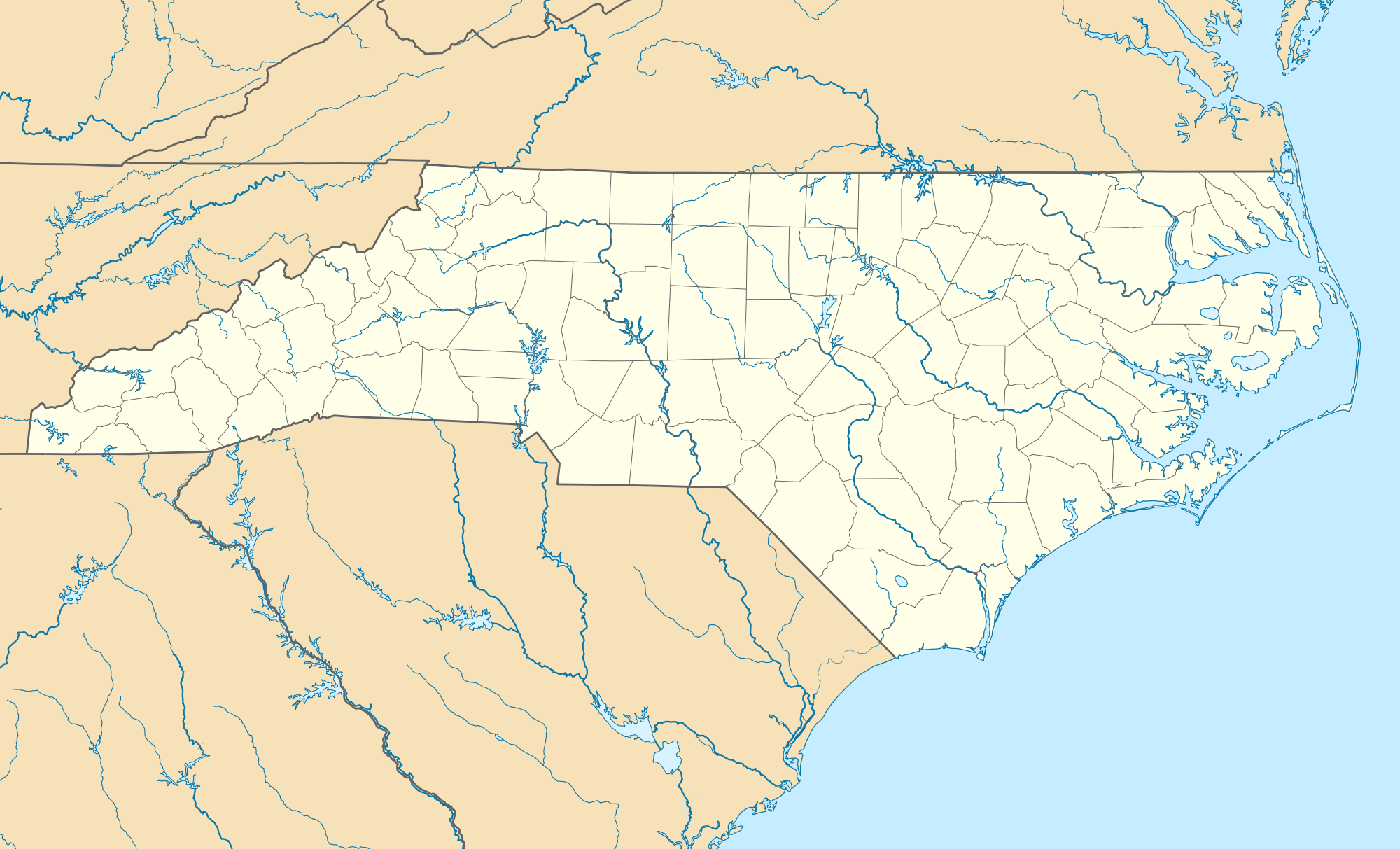

Finding the perfect location for your business requires a combination of research, persistence and luck. Whether you’re crossing the country or just your neighboring state line, there is an obstacle course worth of challenges to overcome.
Here’s one universal truth about relocating or expanding your business: it’s not easy.
But remember, just getting to the point where expansion or relocation is necessary is a sign that your company has done something right. Congratulations. Job well done. Go ahead and share some high fives. Pat yourself on the back.
But don’t gloat for too long, because there’s plenty of work to be done.
You could be a California company looking to expand to the East Coast. Maybe you’re an overseas firm thinking about establishing an office in the United States. Or perhaps you’re a small business owner in Virginia or South Carolina interested in “crossing the border” to take advantage of the lowest corporate tax rate in the nation.
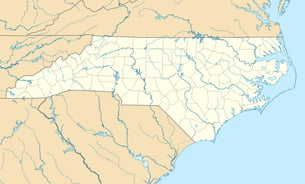 The bottom line is that North Carolina has found its way onto your corporate radar. Maybe it works strategically. Maybe you want to be near the mountains or the beach. Maybe your CEO has a weakness for NC barbecue.
The bottom line is that North Carolina has found its way onto your corporate radar. Maybe it works strategically. Maybe you want to be near the mountains or the beach. Maybe your CEO has a weakness for NC barbecue.
Whatever the reason, you probably have lots of questions. And since they are likely the same questions that businesses around the country and across the globe share, we’d thought we put as many of the answers as we could into one place. These are 7 of the “common denominators” that businesses have identified as deciding factors for new corporate site selection.
Our goal is to give you a head start on your selection process so that you can spend less time looking and more time doing.
Click any of the links below to jump to that section.
| North Carolina Workforce | NC Buildings & Land |
| NC Workforce Development | NC Utilities |
| NC Transportation & Infrastructure | NC Business Incentives |
| NC Business Taxes |

Yes, technology is advancing at a breakneck pace and industries are evolving every day. But we haven’t reached the point where companies can be completely run by robots. You’ll still need humans to help you, and ideally, those humans will be skilled in the kind of work you need to get done on a daily basis.
Building the best team starts with tapping a well of talented people. The deeper that well, the better. So where are you going to find the best workforce in North Carolina?
That all depends on your business.
Do you need programmers or product engineers? Factory workers or fashion designers? One size doesn’t fit all when it comes to recruiting employees, so where you ultimately land in North Carolina is decided by the local labor pool.
Let’s take a broad look first...
North Carolina is a right-to-work state with a low union membership rate (3% on average over the past decade).
The Bureau of Labor Statistics data puts the NC civilian labor force at approximately 4.6 million, with a participation rate over 60%.
And North Carolina has the largest manufacturing workforce in the Southeast, with 460,000 strong.
If you’re looking for fresh talent, there are two major gold mines for great employees in North Carolina: higher education and the U.S. military.
Hundreds of thousands of students graduate every year from public and private universities. That means hundreds of thousands of educated and eager job-seekers looking for a great reason to stay in North Carolina.
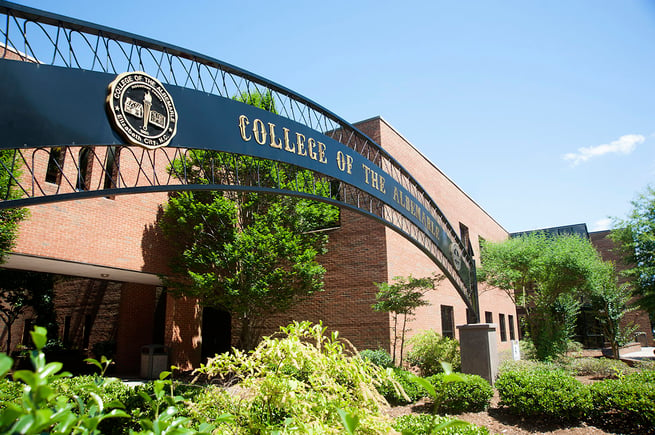
That includes three Tier 1 research universities — North Carolina State University, Duke University and the University of North Carolina at Chapel Hill. The University of North Carolina System includes 17 institutions.
The North Carolina Community College System (NCCCS) offers some of the most comprehensive and advanced vocational and technical programs in the U.S. More than 800,000 students enroll at one of NCCCS’s 58 campuses each year.
When it comes to veterans, North Carolina has the third-largest active-duty and reserve military population (129,049) in the nation. Companies who relocate to the northeastern part of the state can also draw from another 83,000 active duty military members who live in Hampton Roads, Virginia.
In addition, a 2015 Economic Impact study noted that 78,000 individuals were set to leave the military through 2018. More than 82 percent of them will be 30 years old or younger.
Why hire veterans? There are plenty of great reasons, but proven leadership, creativity under pressure and a dedication to teamwork top the list.
Here are some highlights from a 10-year study conducted by the Bureau of Labor Statistics (BLS) and the North Carolina Department of Commerce.
2014-2024 Employment Projections:
Healthcare Support Occupations and Healthcare Practitioners and Technical Occupations are projected to be the two fastest growing occupational groups.
Production Occupations are projected to slightly increase, generating 7,000 jobs.
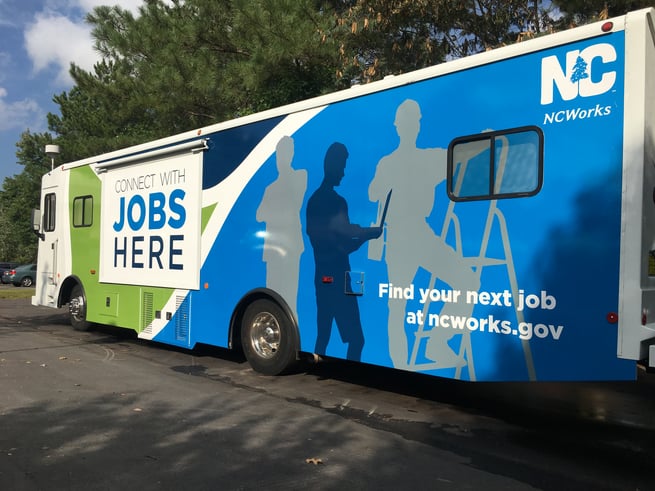
Finding your labor force is only part of the challenge. For many companies, the real struggle is in keeping those workers up to speed with changing technology. Workforce Development is a key component to keeping your business moving forward, but also in helping to enrich the local talent pool.
A free, customized job training and recruiting program for new and expanding businesses. Developed from a partnership between the North Carolina Community College System (NCCCS) and North Carolina’s Department of Commerce .
Currituck County has a 40,000 square foot training facility and workforce development-oriented facility to house College of the Albemarle’s Aviation Technology, Machining and Graphic Design programs. These programs offer a range of skills to students including FAA Part 147 certification for aviation overhaul, manufacturing, machining, and design skills.
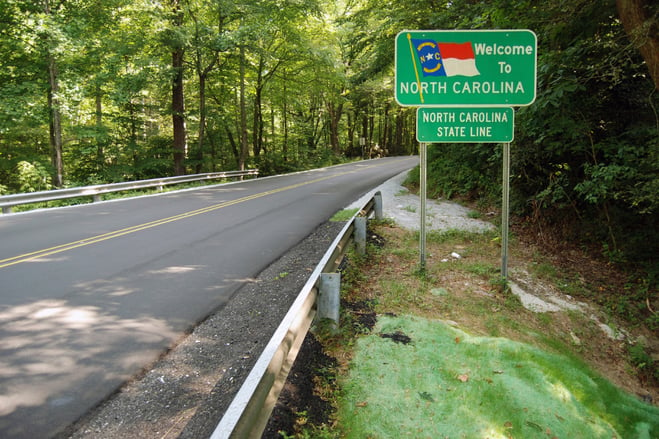
“Location” may mean everything in the real estate business, but location without transportation is worthless to a company seeking to maximize profits. A company’s profitability is directly linked to how fast and efficiently they can get their products to market.
The focus of every business decision is ultimately to help reduce risk and cut the cost of doing business, so speed matters.
Inbound and outbound transportation (aka freight costs) are some of the biggest costs for many companies. That’s why it’s not surprising that CEOs rank transportation as one of the most important factors during the early stages of a site location search.
Reliable infrastructure is vital, whether you’re unleashing a fleet of trucks onto the highways every day or just planning the daily commute for a handful of employees.
Good news: North Carolina is centrally located on the eastern seaboard between Virginia and South Carolina. It’s only neighbor to the east is the Atlantic Ocean. Its Mid-Atlantic location makes NC easy to access from points up and down the coast, which keeps freight and delivery expenses down.
Charlotte-Douglas International Airport (CLT) - the 5th busiest airline hub in the nation
Piedmont Triad International Airport (GSO)
Raleigh-Durham International Airport (RDU)
Wilmington International Airport (ILM)
The state also is home to 11 regional airports and more than 100 general aviation facilities.

North Carolina has two deep-water seaports along Atlantic shipping lines.
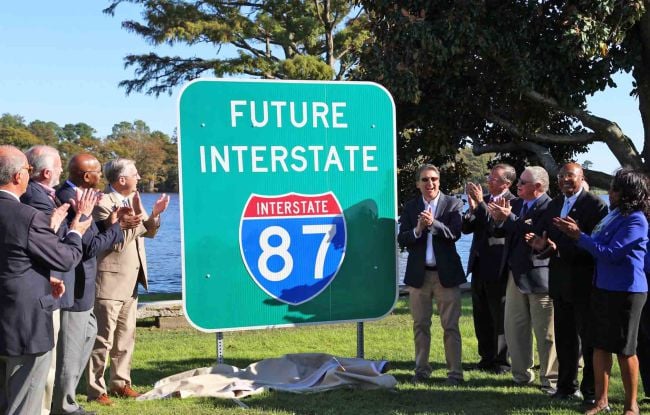
North Carolina is home to the second-largest state-owned highway system in the nation, comprised of more than 90,000 miles of road.
Major controlled-access routes include:

How much of a bite will the state and city or county take out of your business?
Here are the numbers:
North Carolina has a 5.75% individual income tax flat rate
North Carolina has a 3% corporate income tax flat rate (making it the lowest in the country among states that have a corporate income tax).
North Carolina has a 4.75% sales tax
FYI: North Carolina ranks 11th on the Tax Foundation's State Business Tax Climate Index for 2017.
SEE MORE: Tax information for Currituck County
For more specific tax numbers, you'll need to check the website of the city or county you’re interested in.
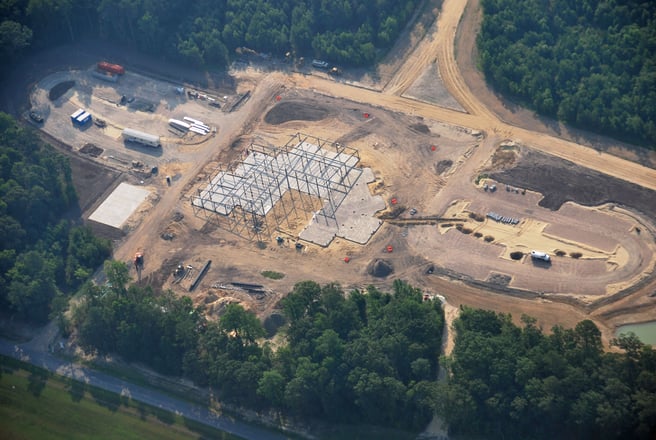
Narrowing your search geographically is the easy part. The real challenge comes in the hunt for that perfect building or piece of land.
Should you build or renovate? Buy or lease? So many questions… but most importantly, how do you get started?
Start Here - Your best bet for finding available land or commercial property for sale in North Carolina is to check AccessNC. The statewide service will deliver site details and map locations.
Get Certified - If you have more specific or pressing needs, you can even do a search for available Certified Sites. You get access to a statewide inventory of industrial sites that have undergone a rigorous prequalification process to ensure they are “shovel ready” for immediate development.
Cast a Wide Net - Search Loopnet. The site remains an industry standard when it comes to locating commercial real estate.
Get Specific - Tighten up your search by using specific city and county commercial property listings. Not all listings make it to the bigger online aggregators, especially in more rural areas where large lots of raw land may be “for sale by owner.” The Currituck Commercial Real Estate listings is a great example.
Talk to a Human - Reach out to a local CRE agent. It never hurts to pick up the phone if you have questions about a property or specific area. Any of these sites can get you headed in the right direction.

Power is essential for running a business. You need to find out what’s available, who provides it and how much does it cost.
Let’s talk about cost first...
According to May 2017 numbers from the U.S. Energy Information Administration:
Average Commercial Electricity Cost (cents/kilowatt hr)
8.64 NC vs 10.58 US
Average Industrial Electricity Cost (cents/kilowatt hr)
5.72 NC vs 6.81 US
More than 100 separately organized electric power providers serve nearly 10 million people in North Carolina.
SEE MORE: The Alternative Energy Sector in the Mid-Atlantic
Delivered to customers in North Carolina by four local distribution companies (LDCs) and eight municipal systems.
If you’re looking for options for renewable and sustainable green energy alternatives, here are some NC sites to point you in the right direction.

The dictionary definition of “incentive” is “something that motivates or encourages one to do something.” While most economic incentives may not be the key deciding factor of where you locate your business, it can certainly help tip the scales when weighing two similar options.
Here are a handful of business-boosting extras that North Carolina brings to the table for relocating and expanding companies, courtesy of the Economic Development Partnership North Carolina … with links to more information on their website.
The JDIG is a performance-based, discretionary incentive program that provides cash grants directly to new and expanding companies to help offset the cost of locating or expanding a facility in the state. The amount is based on a percentage of the personal income tax withholdings associated with the new jobs. Approved companies receive the funds annually, for up to 12 years, following the satisfaction of performance criteria set out in grant agreements.
* Recent deals include window and door manufacturer Jeld-Wen Inc., which will qualify for up to $2.4 million for a new headquarters project in Charlotte
A discretionary cash-grant program with awards based on the number of jobs created, level of investment, location of the project, economic impact of the project and the importance of the project to the state and region.
* Recent awards include $100,000 to textile maker Norafin Americas, who selected Mills River for its first U.S. manufacturing facility; and $180,000 for Belgium-based Lotus Bakeries to open its first U.S manufacturing operation in Mebane.
Community Development Block Grants - Money awarded to local government for public infrastructure development.
Utility Account - Infrastructure and utility improvement grants for local government in Tier 1 and Tier 2 counties in the state.
Rural Division, Economic Infrastructure Program - Provides grants to local governments to assist with public infrastructure projects that lead to the creation of new, full-time jobs.
Rural Division, Building Reuse Program - Provides grants to local government for renovation of vacant buildings; renovation or expansion of a building occupied by an existing North Carolina company wishing to expand in its current location; and renovation, expansion or construction of health care entities.
N.C. Departments of Commerce and Transportation, Joint Economic Development Program - Provides transportation improvements and infrastructure that expedites industrial/commercial growth and provides new jobs or job retention.
North Carolina Department of Transportation Rail Industrial Access Program - Uses state funds to assist in constructing or refurbishing railroad spur tracks required by a new or expanding industry to encourage economic development.
Data Centers Sales & Use Tax Exemptions - Exemptions are available for qualifying data centers, eligible internet data centers and computer software at data centers.
Historic Preservation Tax Credit - Available for the rehabilitation of income-producing historic properties and owner-occupied historic residences.
Manufacturing - Sales and use tax exemptions for manufacturing machinery and equipment; electricity, fuel and natural gas for manufacturing facilities, raw material for manufacturing, and inventories.
Pollution Control and Abatement & Recycling - Property tax exclusions on pollution control and abatement equipment and recycling. It also offers a sales and use exemption for pollution control and abatement equipment.
North Carolina has four general-purpose FTZs and eighteen active subzones approved for use by individual companies. In addition, three of the zones have successfully transitioned to the Alternative Site Framework (ASF).
Performance-based grants awarded to local government in support of life science company projects. Awards are made in amounts of up to $100,000 per project based on project job-creation estimates.
These Stories on Site Selection
No Comments Yet
Let us know what you think